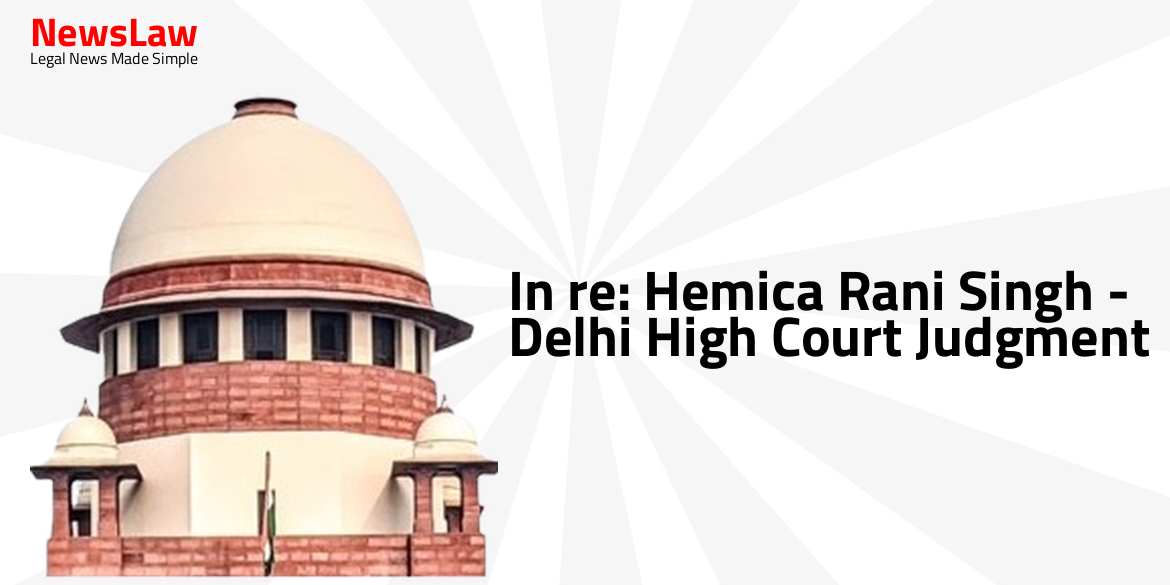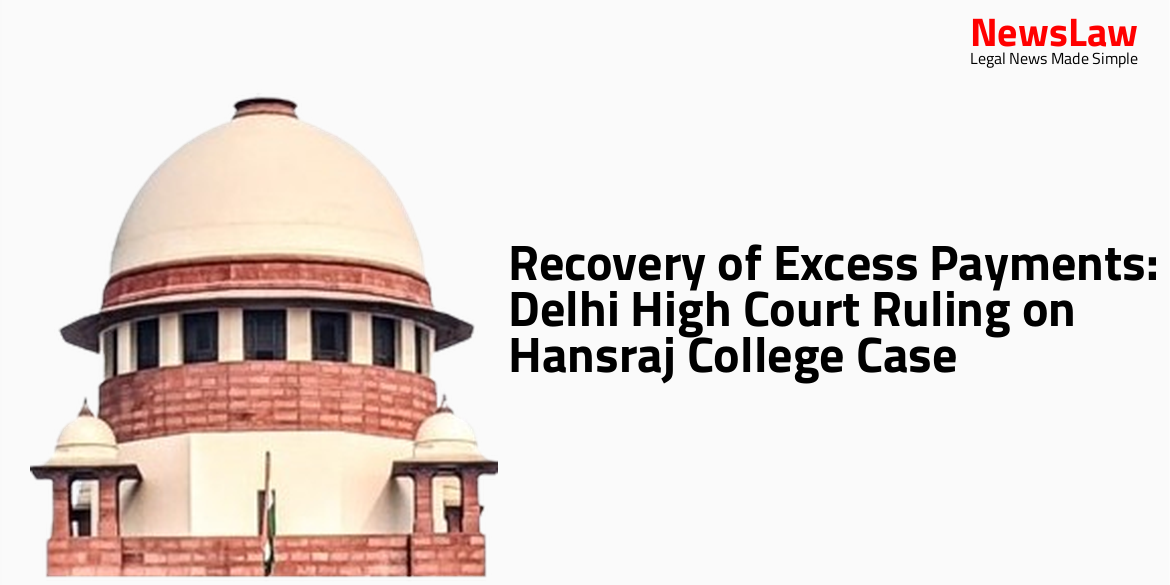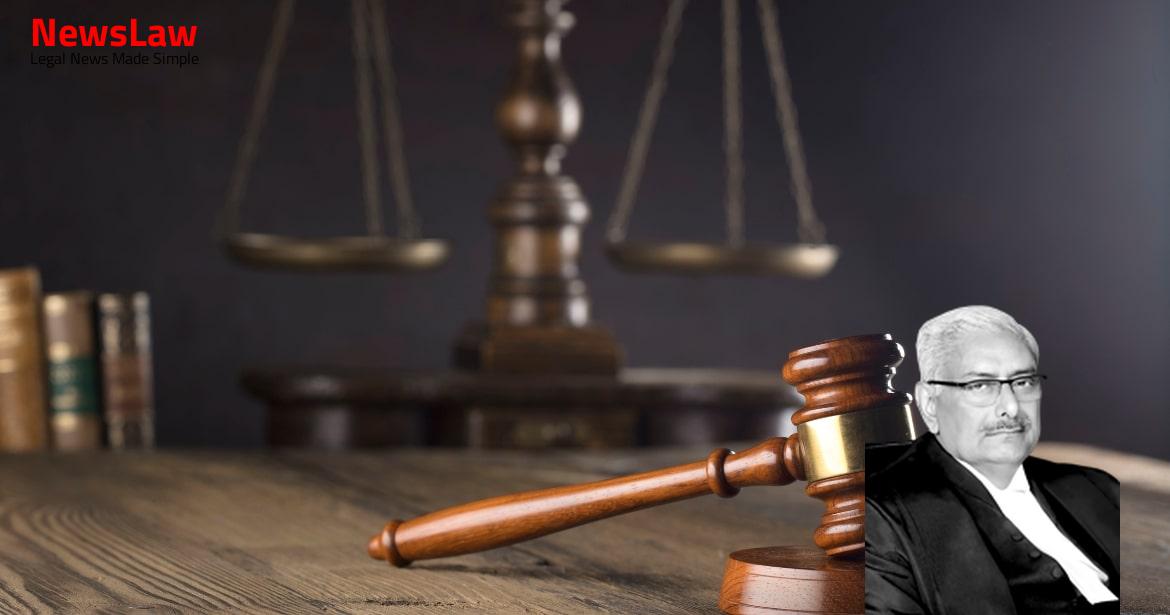The Delhi High Court recently issued a significant judgment in the case involving Hemica Rani Singh. The ruling addresses crucial aspects of medical education eligibility and the requirement of obtaining an Eligibility Certificate before pursuing a medical course abroad. This summary highlights the key points discussed in the court’s decision.
Facts
- Ms. Hemica Rani Singh was born in the Philippines on 20 March 1995 and completed her secondary schooling at Ateneo de Davao University in 2010-2011.
- She completed a four year BS course in the Philippines in 2015, making her eligible for the MD course, considered equivalent to MBBS in India.
- She applied to the NMC for an Eligibility Certificate but was asked to provide Class X, Class XI, and Class XII mark sheets.
- The NMC rejected her application on the grounds that she joined medical school before completing her schooling, which was against NMC regulations.
- Ms. Hemica Rani Singh then obtained an Equivalence Certificate from the AIU for her Senior High School diploma obtained through the K-12 course.
- Despite this, her application for an Eligibility Certificate was rejected again by the NMC due to the same reason.
- She filed a writ petition seeking to quash the rejection and set it aside, which led to a counter affidavit being filed by the NMC stating acknowledgment of the Equivalence Certificate granted by the AIU.
Arguments
- The petitioner, represented by Mr. Naagar, is willing to undergo a one-year internship after passing the FMGE as required by the NMC.
- The Graduate Medical Education Regulations, 1997 mandate qualifying the NEET-UG Examination for MBBS course eligibility.
- The petitioner’s BS examination does not qualify as a pre-medical examination due to not being undertaken after a higher secondary school examination.
- Regulation 2(f) defines a qualifying examination as prescribed in the Graduate Medical Regulations, 1997.
- Indian citizens who had not registered/appeared/qualified NEET-UG 2018 & 2019 were allowed to take admission in medical courses abroad.
- The BS course undertaken by the petitioner is not equivalent to the 10+2 higher secondary examination in India.
- Regulation 8 of the Eligibility Regulations requires verification to ensure candidates meet MBBS admission criteria.
- The NMC has to consider eligibility criteria for MBBS admission in India when issuing an Eligibility Certificate.
- The petitioner’s BS course in the Philippines may not qualify as a pre-medical course according to Regulation 4(2)(c) of the GME regulation.
- The NMC recognizes BS as a pre-medical examination only in the Philippines.
- Indian students need to do a BS course before enrolling in an MD course in the Philippines for medical education.
- The petitioner needs to fulfill eligibility criteria before seeking admission to medical courses abroad.
- Relies on para 6(b) of the judgment of the Supreme Court in Indian Doctors from Russia Welfare Association.
- Cites Division Bench of this Court in Ishaan Kaul v Medical Council of India and in Rohinish Pathak.
- Notes that the SLP against Rohinish Pathak was dismissed by the Supreme Court.
Analysis
- The right to obtain an Eligibility Certificate is available only prior to undertaking the medical course from a Foreign Medical Institution and cannot be deferred to any later stage.
- Section 13 of the IMC Act applies to the facts of the present case.
- The Eligibility Certificate must be obtained before joining the medical course abroad as per the Supreme Court ruling.
- Regulation 4(2) of the Screening Test Regulations requires possession of the Eligibility Certificate before appearing in the Screening Test.
- The Eligibility Certificate cannot be obtained after completing the medical course abroad and obtaining the Primary Medical Qualification (PMQ).
- Any person undergoing medical education abroad must meet the minimum eligibility requirements laid down by the MCI.
- The NMC’s decision to grant Eligibility Certificates post obtaining the PMQ from a foreign institution is contrary to the IMC Act and Regulations.
- Failure to obtain the Eligibility Certificate before joining the MD course makes the candidate ineligible to appear in the FMGE or register as a medical practitioner in India.
- Section 13(4B) does not allow for obtaining the Eligibility Certificate after acquiring the PMQ from a foreign medical institution.
- Allowing the petitioner to obtain the Eligibility Certificate post obtaining the MD qualification would go against Section 13(4B).
- The degrees of students who did not obtain the Eligibility Certificate before joining should be treated as eligible for registration with MCI.
- Section 13(4B) specifies that individuals obtaining a qualification from a foreign medical institution without an eligibility certificate cannot appear for the screening test.
- Section 13(4A) mandates candidates, who are Indian citizens and have obtained a PMQ from a foreign medical institution, to qualify through the State Medical Council or Indian Medical Register.
- Section 13(4B) also states that Indian citizens must obtain an Eligibility Certificate from the MCI before seeking admission to a foreign medical institution for a PMQ.
- The Eligibility Certificate must be obtained before joining the medical course abroad as per statutory requirements.
- The Supreme Court emphasized the need for an Eligibility Certificate in order to practice medicine in India.
- Students who fail to obtain the Eligibility Certificate before joining the medical course abroad lose the chance to do so later.
- The case discussed the importance of adhering to the Screening Test Regulations and Eligibility Regulations.
- Judicial discipline requires following precedents that emphasize obtaining the Eligibility Certificate before pursuing medical studies abroad.
- The student in question was not entitled to apply for an Eligibility Certificate after completing the MD Course.
- The judgments in Indian Doctors from Russia Medical Association and Ishan Kaul do not allow students to apply for the Eligibility Certificate post completion of the medical course abroad.
Case Title: HEMICA RANI SINGH Vs. NATIONAL MEDICAL COMMISSION & ANR. (2024:DHC:4699)
Case Number: W.P.(C)-3356/2022



